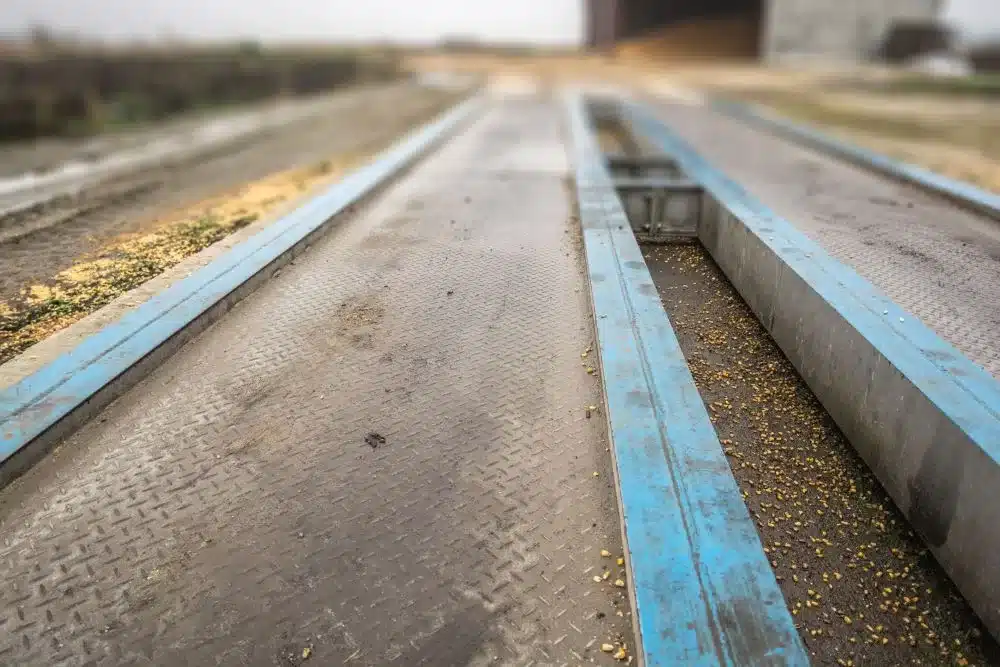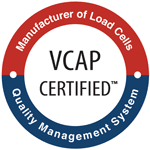 January 17, 2024
January 17, 2024
Having a Portable truck axle scale without maintenance is like having none at all. The true value of a scale is in its accuracy.
Not maintaining a portable truck scale means it’s not functional. Maintenance isn’t just recommended it’s required to extend the life and accuracy of these scales.
In this post, we’ll talk axle scale maintenance and provide insights and tips for technical people and buyers.
Importance of Regular Inspections
Regular inspections are the foundation of axle pad scale maintenance.
When done by a trained and competent person, a full inspection should cover:
The weighing platform;
- Load cells;
- Junction boxes;
- Wiring;
- And indicators.
It’s also important to go beyond surface checks; after all internal inspections can reveal hidden problems that can affect the scale performance.
Regular assessments ensure that both portable vehicle scales and fixed installations continue to operate at their best.
Common Issues and Their Solutions
Keep your truck axle scales in top shape by following these guidelines:
Weather Protection
Protect your scales from the elements. This means weatherproof covers for the instruments or installing scales in a location that’s not exposed to direct rain, snow, or extreme sun. This prevents wear and tear and keeps the scales working.
Manual Reference
The manual is your best friend. Refer to it regularly to clear up questions on operation, maintenance schedule, and handling of anomalies.
Traffic Management
Vehicle traffic over the scale should be smooth to prevent sudden impact and uneven loading which can put stress on the scale mechanisms.
Scheduled Servicing
Like any precision instrument, your truck axle scale needs regular check-ups. Following a servicing schedule will catch potential issues early and save time and cost in the long run.
Lubrication of Joints
This is for mechanical parts. Regular lubrication reduces friction, prevents wear, and extends the life of moving parts.
Load Cell Functionality
Check for damage, corrosion, or misalignment regularly. Address any irregularities in load cells immediately to prevent bigger issues.
Professional Inspections
Sometimes the most critical parts are not visible. Professionals have the tools and expertise to diagnose underlying issues that may not be visible to someone without the training.
Rust-Proofing
Rustproofing is especially important in damp or corrosive environments.
Maintain Cleanliness
A clean scale is a precise scale. Clean regularly, especially in the nooks and crannies to make the scale work its best.
End Bumper Spaces Check
These spaces can accumulate debris or misaligned and affect the scale’s operation. Check and clean regularly to make sure they work correctly and don’t affect the scale’s accuracy.
Prevent Overloading
Exceeding the scale’s capacity regularly can cause mechanical stress and long-term damage.
Balance and Calibration
Calibration is not just a routine check; it’s about making sure your scale measures accurately under all conditions. Balance and calibrate at recommended intervals or after significant events like relocation to ensure precision.
Flat Surface Placement
An uneven surface will give inaccurate readings. Make sure your scale is level to get accurate weight. Even a slight slope can affect the readings.
Junction Box Assessment
The junction box is often overlooked but is critical for signal transmission from load cells. Make sure it’s in good condition and dry and not damaged for consistent scale performance.
Software Upkeep
In this day and age where technology moves fast, keeping your scale’s software up to date is just as important as physical maintenance.
Pressure Washing
While regular cleaning is important, pressure washing can be great for getting rid of stubborn grime and buildup that regular cleaning might miss. But do it carefully so you don’t damage the sensitive parts.
Avoid Unauthorized Modifications
Unauthorized changes will void warranties and cause malfunctions. Always consult with professionals or refer to your manual before making any changes so you don’t damage your scale unintentionally.
Proper Storage
For portable scales, proper storage is crucial. This means keeping them in a dry and clean environment and not subjecting them to unnecessary stress or strain when not in use.
Rodent-Free Installation
Rodents can cause unexpected problems, gnawing through cables and nesting in equipment. Regular checks for signs of infestation and preventive measures will save you a lot of headaches. The use of rodent-proof cable will help protect your scale.
Timely Part Replacement
Wear and tear is inevitable. Identifying and replacing worn parts on time will prevent unexpected failures and downtime.
Frame and Board Inspection
The frame and board hold everything together. Regular checks for cracks, warping, or other structural issues are critical for safety and accuracy.
By following these maintenance practices you are ensuring your truck axle scales, whether portable or installed, will be reliable and accurate.
Discover more about scale maintenance in our articles on portable truck scales and their advantages.
Best Practices for Maintenance
To keep your axle scales, including portable trailer weight scales and axle scales, in top condition, consider the following:
- Regular Cleaning: Dust, debris, and other environmental factors can affect scale performance.
- Calibration and Balance: Frequent calibration ensures accuracy. Balance adjustments might be necessary due to wear or environmental changes.
- Mechanical Checks: Regular inspections of mechanical parts and connections are crucial.
- Weather-proofing: Protect your scales from harsh weather conditions to extend their lifespan.
- Software Updates: For digital scales, ensure the software is up-to-date.
- Electronics: Keep your electronics and junction boxes dry.
- Stability: Ensure foundations are stable over time.
Maximizing Returns Through Effective Truck Axle Scale Maintenance
Take care of your truck axle scale and it will take care of you.
Regular inspections, addressing common problems, following best practices, and using professional services will get you a maintenance plan for your investment.
Invest in good equipment and pay attention to it and you’ll get more efficient operations and get your investment back over time.
Follow our maintenance guide and you’ll protect your investment, get efficient operations, and long-term returns. Contact Massload Technologies for any help or questions. We’ll help you scale success!
For further insights into scale maintenance, you can also visit our article on Maintenance of Portable Truck Scales.


